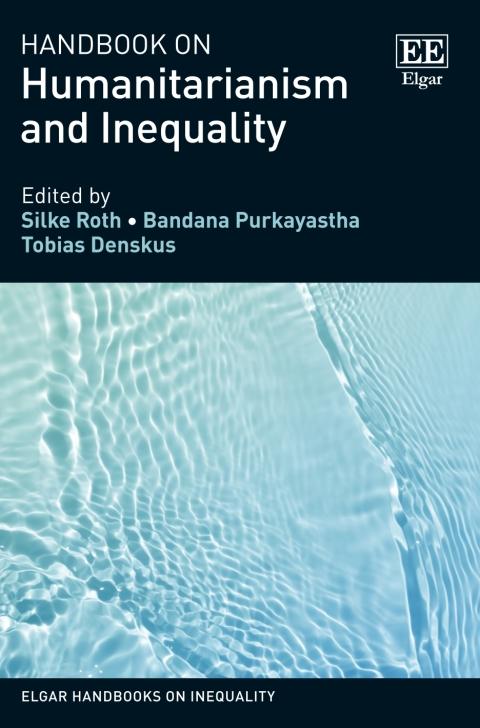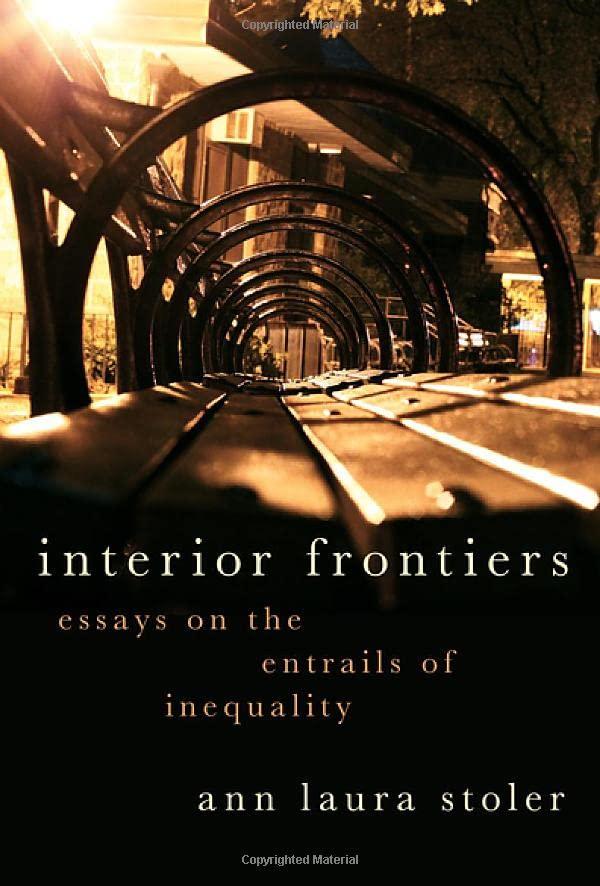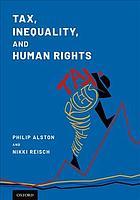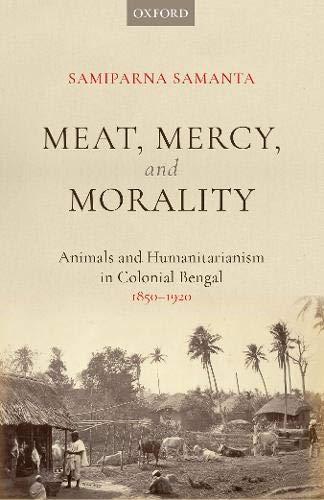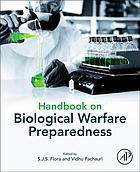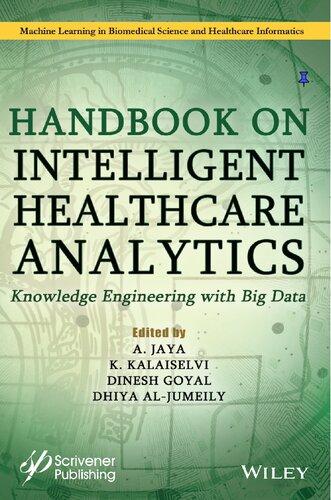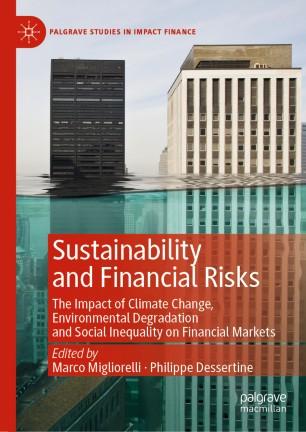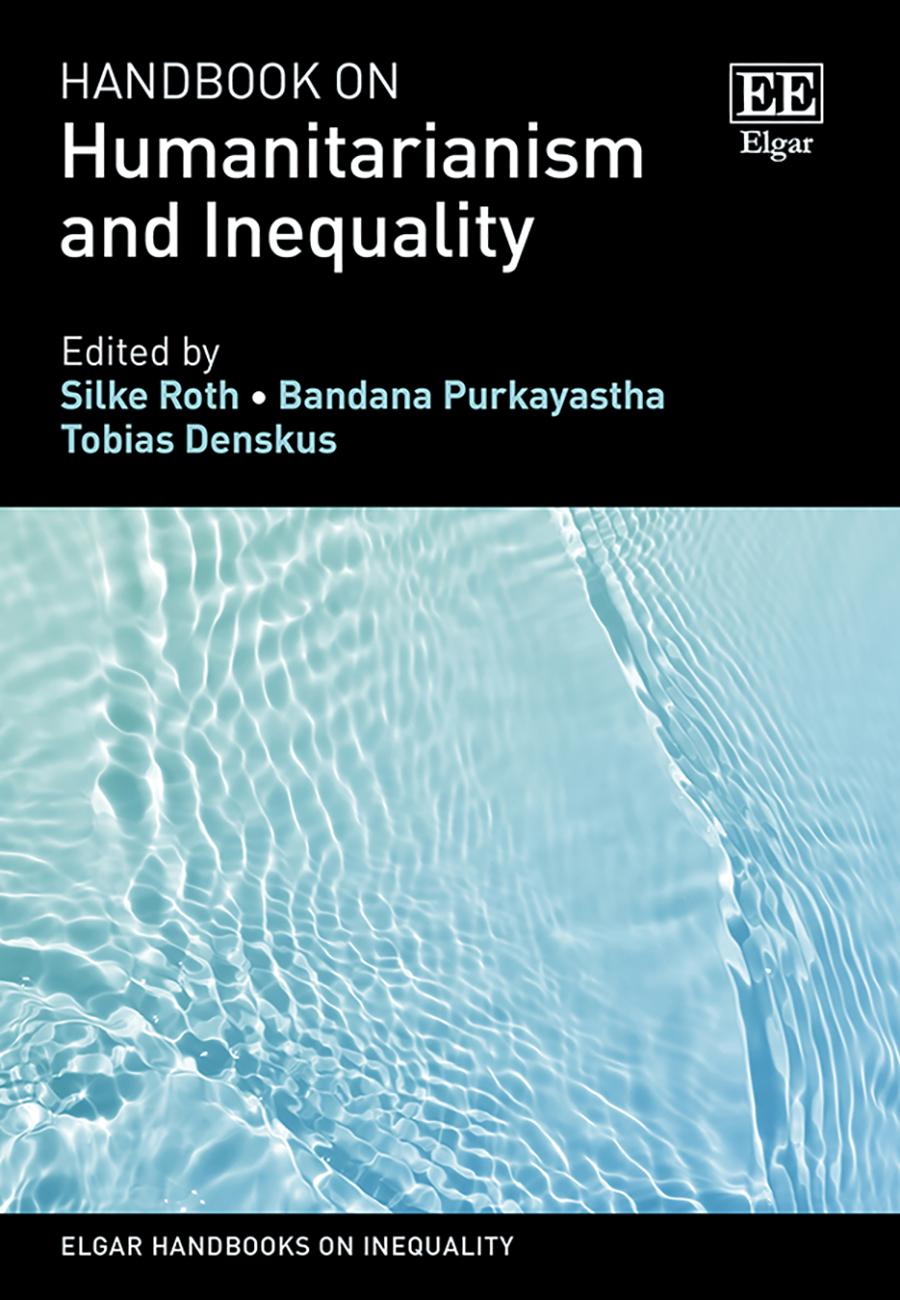Handbook on Humanitarianism and Inequality
Edited by Silke Roth
Professor of Sociology, Department of Sociology, Social Policy and Criminology, University of Southampton, UK
Bandana Purkayastha
Board of Trustees Distinguished Professor of Sociology, Department of Sociology, University of Connecticut, USA
Tobias Denskus
Associate Professor in Development Studies, Faculty of Culture and Society, School of Arts and Communication, Malmö University, Sweden
ELGAR HANDBOOKS ON INEQUALITY
Cheltenham, UK • Northampton, MA, USA
© Silke Roth, Bandana Purkayastha, Tobias Denskus 2024
All rights reserved. No part of this publication may be reproduced, stored in a retrieval system or transmitted in any form or by any means, electronic, mechanical or photocopying, recording, or otherwise without the prior permission of the publisher.
Published by
Edward Elgar Publishing Limited
The Lypiatts 15 Lansdown Road Cheltenham Glos GL50 2JA UK
Edward Elgar Publishing, Inc. William Pratt House 9 Dewey Court Northampton Massachusetts 01060 USA
A catalogue record for this book is available from the British Library
Library of Congress Control Number: 2023951223
This book is available electronically in the Sociology, Social Policy and Education subject collection http://dx.doi.org/10.4337/9781802206555
ISBN 978 1 80220 654 8 (cased)
ISBN 978 1 80220 655 5 (eBook)
39.1
11.1 Town-twinning agreements with Catalan municipalities, 1980–2000 158
11.2 List of motions carried by Catalan city councils in relation to cooperation and solidarity issues, 1998–1999 159
34.1 Summary of five ethics guidance documents for research in humanitarian settings 502
Contributors
Shweta M. Adur is an associate professor of sociology at California State University, Los Angeles. She received her BA in Sociology (Lady Shri Ram College, Delhi), MA in Sociology (Jawaharlal Nehru University, Delhi), MA in International Development (University of Pittsburgh), and PhD in Sociology (University of Connecticut). She co-authored a book As the Leaves Turn Gold: Asian Americans and Experiences of Aging (Routledge, 2012) and has articles in anthologies and peer-reviewed journals such as Current Sociology and the Journal of Gender Studies.
Shashika Bandara is a doctoral candidate focusing on global health policy and governance at McGill University. He holds a masters in global health from Duke University and was a policy associate at Centre for Policy Impact in Global Health at the Duke Global Health Institute. His previous experiences include working in humanitarian settings of post-conflict regions in Sri Lanka and on human rights in South Asia. He is interested in addressing attacks on healthcare and improving humanitarian research.
Professor Paula Banerjee specialises in issues of border and borderlands in South Asia. She has published extensively on issues of gender, forced migration, and peace politics. She was the Vice Chancellor of Sanskrit University, Kolkata. She is a former President of the International Association for Studies of Forced Migration. She has been recently appointed as Director of the Asian Institute of Technology Centre on Gender and Forced Displacement.
Junru Bian is a doctoral candidate at the School of Political Studies, University of Ottawa. His research focuses on the identities, spaces, and practices of peacekeeping, humanitarianism, and development. As part of his research, he interviews different conflict interveners to understand how their racial, gender, sexual, and classed identities can influence their everyday practices in crisis environments. He has worked in multiple humanitarian relief and development programs in Tajikistan, Mongolia, Myanmar, and Ethiopia.
Oheneba A. Boateng is an assistant professor of Political Science at Clark University in Worcester, MA. He specialises in Africa’s international politics, regionalism, and global governance. Oheneba is trained in the fields of history, globalisation, and political science. From this multidisciplinary background, he researches several themes including humanitarianism, international security, and migration. He has published both scholarly and policy research on depoliticisation of development, biological citizenship, humanitarian action, and African integration and is currently completing a book on Africa’s homegrown humanitarian governance.
Dale Buscher is Vice President for Programs at the Women’s Refugee Commission, leads work on refugee livelihoods, youth, adolescents, and gender. Buscher has worked in humanitarian assistance since 1988, managing programs in the Balkans, Middle East, and Asia. He has authored articles and book chapters on refugee protection, urban refugees, and gender. Buscher is an adjunct associate professor at Columbia University’s School of International and Public Affairs and holds a master’s degree in Social Work from the University of Utah.
Shoma Choudhury Lahiri is an assistant professor of sociology at St. Xavier’s College (Autonomous) Kolkata. Her research interests lie in the field of social movements, ecology, sociology of science and development, citizenship, and qualitative methods. She has a few publications in the form of articles and book chapters in national and international journals. She has recently published an edited volume on qualitative research methodologies titled Doing Social Research: Qualitative Methods of Research in Sociology (Orient Blackswan, 2020).
Elyse Rafaela A. Conde is a researcher, advocate, and development worker who has been involved in the Disaster Risk Reduction and Management (DRRM) landscape since 2014. Through her engagement with Philippine civil society as well as vulnerable sectors, she has been able to document and share lived experiences of disasters across various levels – most especially at the grassroots – through myriad stories, papers, and studies. She continues to work as a freelance researcher, undertaking projects aimed at enabling community resilience and development.
Alistair D.B. Cook is Coordinator of the Humanitarian Assistance and Disaster Relief Programme and Senior Fellow at the Centre for Non-Traditional Security Studies (NTS Centre), S. Rajaratnam School of International Studies (RSIS), Nanyang Technological University (NTU) in Singapore. His research interests focus geographically on the Asia-Pacific, and Myanmar in particular, and thematically on humanitarian assistance and disaster relief (HADR), foreign policy, and regional cooperation. Recent publications include co-edited books on Humanitarianism in the Asia-Pacific: Engaging the Debate in Policy and Practice (Springer, 2021) and Non-Traditional Security in the Asia-Pacific: A Decade of Perspectives (World Scientific, 2021) and articles in scholarly and policy publications.
Abeer Dakik is an administrator and a full member of the Biomedical Institutional Review Board at the American University of Beirut (AUB), where she has been working since 2009. Ms Dakik earned her BS in Nursing and a master’s degree in Epidemiology from AUB. She now serves as an expert in regulatory matters that apply to human subject protection in biomedical research.
Tobias Denskus is an associate professor in development studies at Malmö University in Sweden co-directing the blended learning online MA program in Communication for Development which was established in 2000. He has an interdisciplinary profile in peace and conflict, development and media and communication studies. His research focuses on digital development and humanitarian communication topics, and he is also interested in aid worker (auto)biographies as an emerging literary genre.
Jennifer Philippa Eggert is a researcher and practitioner working on international development, violent conflict, humanitarian action, and migration with a focus on gender, faith, and local approaches. She is a Senior Research Fellow at the Joint Learning Initiative on Faith and Local Communities (JLI), hosted by the University of Leeds in 2021–2023. She was previously Head of Research at a leading international humanitarian faith-based organisation and has worked as a researcher and practitioner in Africa, Asia, Europe, the Middle East, and North America.
Maria Rosa Garrido is lecturer in English language and linguistics at the Universitat Autònoma de Barcelona (Catalonia, Spain). Her main research interests include the management of multilingualism and the construction of transnational identities in civil society organisations. She is author of the monograph Community, Solidarity and Multilingualism in a Social Movement: A Critical Sociolinguistic Ethnography of Emmaus (Routledge Critical Studies in Multilingualism, 2021).
Oscar A. Gómez is associate professor at the College of Asia Pacific Studies, Ritsumeikan Asia Pacific University. His main interest is in global governance and the practice of human security ideas, particularly in relation to crises. He was Research Fellow at Japan International Cooperation Agency (JICA) Research Institute for five years and helped drafting several papers for UNDP Human Development Reports (2014, 2016, 2020, 2022). Recent publications include edited books and papers on human security and humanitarianism in East Asia and Latin America.
Lina Gong is a Research Fellow with the Humanitarian Assistance and Disaster Relief Programme at the Centre for Non-Traditional Security Studies, S. Rajaratnam School of International Studies, Nanyang Technological University. Her research interests include humanitarian studies, global governance, and non-traditional security studies in East Asia. Her recent publications include two journal special issues on Humanitarian Diplomacy in the Asia-Pacific, one co-edited book on Humanitarianism in the Asia-Pacific: Engaging the Debate in Policy and Practice (Springer, 2021), and one special journal issue ‘Southeast Asian Non-traditional Security Engagement’.
Valérie Gorin is senior lecturer and researcher at the Geneva Center of Humanitarian Studies (University of Geneva). As a historian and media scholar, she has carried out research on the history of aid and humanitarian communication, with a strong focus on visual culture and politics. She has published on the iconography of famine, war images, representations of migration, visual advocacy, humanitarian cartoons, or humanitarian cinema. She is currently doing research about the use of virtual reality and digital innovations in the aid sector.
Barbara Gurr is an associate professor in Residence with the Women’s, Gender, and Sexuality Studies Program at the University of Connecticut. She is the author of Reproductive Justice: The Politics of Healthcare for Native American Women (Rutgers University Press, 2015), editor of Race, Gender and Sexuality in Post-Apocalyptic TV and Film (Palgrave MacMillan, 2015), and co-editor of Feminist Research in Practice (Rowman and Littlefield, 2019). Her research focuses on settler colonialism in the United States.
Nina Hansen is professor (adjunct) of social and cultural psychology at the University of Groningen, The Netherlands. Her research centres on the social psychology of cultural change. She is interested in social and cultural change that is caused by international development projects in the Global South as well as in the context of integration of migrants. She collaborates with scholars from different disciplines and societal actors around the world. She regularly is consulted by different governments and organisations around the world as an expert on designing psychological interventions and monitoring and evaluation designs.
Naoko Hashimoto is associate professor at the Graduate School of Social Sciences, Hitotsubashi University, Japan. Before joining academia, Naoko worked for UNHCR, IOM, and the Government of Japan for 15 years. She holds a master of studies in Forced Migration, Refugee Studies Centre, University of Oxford, LLM in International Human Rights Law from University of London, and PhD in Politics from University of Sussex. She is affiliated with Refugee Law Initiative, University of London and serves as a Refugee Adjudication Counsellor appointed by the Japanese Minister of Justice.
Liesbet Heyse is associate professor of sociology at the University of Groningen, the Netherlands. She studies non-profit and public organisations that aim to improve the situation of disadvantaged groups in society. She specifically focuses on their organisational policies and governance features in relation to the (un)intended consequences of their interventions. She studies these issues in organisations such as humanitarian NGOs, and Dutch municipalities, and NGOs working on the labour market integration of refugees, applying both qualitative and quantitative methods.
Matthew Hunt is an associate professor at McGill University’s School of Physical and Occupational Therapy, and a researcher at the Centre for Research on Ethics and the Centre for Interdisciplinary Research in Rehabilitation. He conducts research at the intersections of ethics, rehabilitation, and global health, and is co-lead of the Humanitarian Health Ethics Research Group (humanitarianhealthethics.net).
Muhammad Makki Kakar is a researcher and academic. He holds a Doctorate in Sociology from International Islamic University, Islamabad, Pakistan. Currently, he is working with the School Education Department of the Government of Balochistan. His research interests include human rights, social inequalities, migration, human trafficking, and human smuggling.
Ilan Kelman is Professor of Disasters and Health at University College London, England and a professor II at the University of Agder, Kristiansand, Norway. His overall research interest is linking disasters and health, integrating climate change into both. Three main areas are: (1) disaster diplomacy and health diplomacy http://www.disasterdiplomacy.org; (2) island sustainability involving safe and healthy communities in isolated locations http://www .islandvulnerability.org; and (3) risk education for health and disasters http://www.riskred.org.
Themrise Khan is an independent development professional and researcher with over 25 years of practitioner and policy-based experience in international development. She has a number of publications and articles to her credit. She has just published a co-edited book; White Saviorism in International Development. Theories, Practices and Lived Experiences (Daraja Press, 2023). She blogs, speaks and writes on North–South power imbalances in development, race relations and immigrant citizenship and integration. She lives in Pakistan.
Simone Lucatello is a full-time researcher at Instituto Mora, a public research centre based in Mexico City, Mexico. He holds a joint BA in History from the University of Venice Cá Foscari, Italy, and University College London (UCL), an MA in International Relations from the London School of Economics and Political Science (LSE), and a PhD in Governance for Sustainable Development from Venice International University (VIU), Italy. His research interests deal with disaster relief, climate change, humanitarian action, and sustainability.
Michael Magcamit is lecturer (assistant professor) in Global Politics at The University of Manchester in the United Kingdom. He is the author of, among others, Ethnoreligious Otherings and Passionate Conflicts (Oxford University Press, 2022) and Small Power and Trading Security (Palgrave/Springer, 2016).
Anastassiya Mahon is an associate lecturer in Security Studies at Aberystwyth University, specialising in the intricate dynamics of global security. Her research primarily focuses on the interplay of (in)security in shaping policy, particularly in the context of illiberal regimes, such as Russia and Central Asian countries. Her works on security, terrorism, and policy analysis have been published in International Studies Perspectives, Critical Studies on Terrorism, Studies of Transition States and Societies, and the Foreign Policy Centre.
Salvador Martí i Puig is Professor of Political Science at Universitat de Girona and associate researcher at CIDOB-Barcelona and the Ibero-American Institute at the Universidad de Salamanca. He has been a visiting professor and researcher at different universities in Europe, Latin America, and the United States. His field of research is comparative politics, mainly in Latin America. He has collaborated as a consultant and evaluator in international institutions such as UNDP. He has published books and articles in specialised magazines on collective action, social movements, and Latin American politics.
Alberto Martín Álvarez is Distinguished Professor at the Department of Public Law of the Universitat de Girona. He has been full researcher at the Instituto Mora (Mexico City) and visiting professor at several universities in Europe and Latin America. His research focuses on social and political movements and political violence, mainly in Central America. Among his latest publications are: Building the Radical Identity. The Diffusion of the Ideological Framework of the New Left (with Eduardo Rey) (Peter Lang, 2022) and Toward a Global History of Latin America's Revolutionary Left (with Tanya Harmer) (University Press of Florida, 2021).
Tulani Francis L. Matenga is a junior research fellow at the Centre for Infectious Disease Research in Zambia. He holds a Master’s in Public Health–Health Promotion and Education from the University of Zambia. His research cuts across several disciplines including HIV/ AIDS, maternal and child health, health promotion, and community resilience, and power dynamics in health care. He is currently pursuing his PhD at the University of Zambia in the department of health promotion and education.
Rodrigo Mena is Assistant Professor of Disasters and Humanitarian Studies at the Institute of Social Studies (ISS) of Erasmus University Rotterdam, The Netherlands, and Board member of the International Humanitarian Studies Association and the Expertise Centre Humanitarian Communication. His research focuses on humanitarian responses and risk reduction to disasters, their interaction with other crises, and on the ethical, safety, and security aspects fieldwork research. Before his current positions he worked with multiple NGOs, the UN, ministries, and as international consultant.
Eija Meriläinen is a post-doctoral researcher at Örebro University (Sweden), an honorary Senior Research Fellow at University College London (UK), and affiliated researcher at Hanken School of Economics (Finland). Her work explores critically the roles and power of various actors involved in politics of disasters and other societal disruptions.
Lwendo Moonzwe Davis is a research and evaluation specialist with training in sociology, public health, and women’s studies. She holds a PhD in Sociology and Master’s in Public Health from the University of Connecticut. She has public health and mixed-method research expertise, and her technical background includes experience in behavioral communication change, culturally based intervention design, family planning, food security, human rights, maternal and child health, nutrition, sexual and reproductive health, and women’s empowerment.
Augusta Nannerini is PhD Candidate in International Relations and Political Science, Research Assistant at the Center on Conflict, Development and Peacebuilding and Affiliate to the Gender Center at the Graduate Institute in Geneva, Switzerland. Her PhD thesis revolves around the analysis of data practices in the context of forced displacement, and she is interested in their different use by development, humanitarian, and peacebuilding actors. She also studies European migration and asylum policies and she has experience in working with a number of humanitarian organisations.
Anjana Narayan is a Professor of Sociology at California State Polytechnic University, Pomona. She is the co-author of Living our Religions: Hindu and Muslim Asian American Women Narrate their Experiences (Kumarian, 2009) and the co-editor of Research Beyond Borders: Interdisciplinary Reflections (Lexington Books, 2012). She is currently associated with an international and interdisciplinary collaborative research network to advance the study of lived religion and gender in relation to Hinduism and Islam.
Lata Narayanaswamy is Associate Professor in the Politics of Global Development, School of Politics and International Studies (POLIS), University of Leeds, UK. Since 2001, Lata has worked as a research practitioner, consultant, and now an academic, and her research and published work critically reflects on the gendered/intersectional and post/decolonial dynamics of development knowledge and its perceived contribution to addressing global development challenges.
Katarzyna Nowak is a historian specialising in cultural and social history of Eastern Europe, with a particular interest in refugee and migrant history. During her research at the University of Manchester, Vienna Wiesenthal Institute for Holocaust Studies, and Central European University, she focused on displaced persons in the early Cold War period in the global perspective. She has recently completed her first monograph, entitled Kingdom of Barracks. Polish Displaced Persons in Allied-occupied Germany and Austria (McGill-Queen’s University Press, 2023). Currently, she is researching the Vatican’s involvement in post-1945 refugee aid.
Aoife O’Leary McNeice is a social historian. Her research interests encompass humanitarianism, empire, gender, archives and inequality. She recently completed a PhD on imperial humanitarianism and the Great Irish Famine at the University of Cambridge and previously worked on digitisation projects at the National Library of Scotland and the University of Edinburgh. She is currently a postdoctoral researcher at the University of Exeter, working on the Imagining Futures through Un/Archived Pasts project.
Bandana Purkayastha is Board of Trustees Distinguished Professor of Sociology and Asian & Asian American Studies at the University of Connecticut. Her research on human rights, intersectionality, migrants, violence, and peace appears in over 75 books, articles, and chapters. She has been recognised for research excellence and teaching and mentoring, including American Sociological Association’s Jessie Bernard award, ‘which recognises significant contributions to improving the lives of women’. She serves on the executive committee of International Sociological Association.
Emma Pearce led the Women’s Refugee Commission’s global research and advocacy on disability inclusion across the humanitarian sector from 2012–2018. She now works as a Gender and Inclusion Consultant providing technical support to a range of organisations, including UN agencies and NGOs. Emma has worked in partnership with organisations of persons with disabilities from around the world and is currently undertaking a PhD at Deakin University focused on the role of women and girls with disabilities in humanitarian action.
Margaux Pinaud is Academic Coordinator of the executive programmes in conflict and fragility management at the Center on Conflict, Development and Peacebuilding at the Graduate Institute in Geneva, Switzerland. Her teaching and research focus on conflict management in civil wars, with a specific interest in ceasefires, armed group behaviour, and civil society participation. She is also involved in efforts to increase communication and cooperation between academia, policy, and practice.
Silke Roth is professor of sociology at the University of Southampton in the Department of Sociology, Social Policy and Criminology. She is working on the intersections of political sociology and the sociology of work. The red thread that runs through her work is the question how organisations overcome and perpetuate inequality through the in- and ex-clusion of different constituencies in membership and leadership, and through their goals and objectives. She studies various forms of engagement in historical and biographical perspectives. Her latest book co-authored with Clare Saunders is Organising for Change. Social Change Makers and Social Change Organisations (Bristol University Press, 2024).
Rianka Roy is a PhD Candidate in Sociology at the University of Connecticut. Her current research on Indian tech workers’ activism falls at the intersection of labour and labour movements, social movements, gender, and migration. As a qualitative researcher, she borrows tools and insights from feminist and decolonial methodologies. Rianka completed her previous PhD program at Jadavpur University, India on social media surveillance. She also taught English literature at an undergraduate college in India before transitioning to Sociology.
Priya Singh is Associate Director at Asia in Global Affairs (AGA). Priya is a political scientist with a linguistic understanding of some of the regions she covers. Her research focuses on themes such as identity, state formation, ethnicity, gender, migration, and marginalisation in the Global South as well as on indigenous and minority communities in West and South Asia in particular.
Lise-Hélène Smith is a professor of world literature at California State Polytechnic University, Pomona. She is the co-editor of Research Beyond Borders: Interdisciplinary Reflections (Lexington Books, 2012). Her research interests include exile, migration, and decoloniality as linked to race and gender in the Southeast and South Asian diasporas as well as in Francophone literatures.
Agnieszka Sobocinska is Director of the Menzies Australia Institute and Reader in International History and Historical Geography at King’s College London. She is the author of two monographs, Saving the World? Western Volunteers and the Rise of the Humanitarian-Development Complex (Cambridge University Press, 2021) and Visiting the Neighbours: Australians in Asia (UNSW Press, 2014).
Rita Stephan is a Research Fellow at The Khayrallah Center for Lebanese Diaspora Studies at North Carolina State University. Her publications focus on women’s movements in the Middle East and the Middle Eastern community in the US Census. She edited COVID and Gender in the Middle East, Women Rising: In and Beyond the Arab Spring and In Line with the Divine: The Struggle for Gender Equality in Lebanon (University of Texas Press, 2023). She has served in various capacities in the Census Bureau, USAID, and the State Department.
Bonaventure Gbétoho Sokpoh is Policy and Outreach Senior Advisor at CHS Alliance. He advocates for change in policy based on experience with the application of the Core Humanitarian Standard on Quality and Accountability (CHS). He has been working in the humanitarian and development sectors for more than 20 years, conducting humanitarian programme evaluation and operational research, building monitoring systems, and designing and facilitating training sessions. He was born and studied agro-economy in Togo as well as sociology and economics in France.
Sarah S. Stroup is professor of political science at Middlebury College (Vermont, USA) and executive director of the Davis Collaborative in Conflict Transformation. She is author of Borders Among Activists (Cornell, 2012) and co-author with Wendy Wong of The Authority Trap (Cornell, 2017), winner of the 2019 ARNOVA Outstanding Book Award. Her teaching and scholarship focus on international NGOs, humanitarian relief, and human rights. Her recent projects examine the human rights and democracy promotion sectors and European Union humanitarian aid.
Reem Talhouk is a Lebanese Design Researcher and Assistant Professor at Northumbria School of Design where she is the co-lead of the Design Feminisms Research Group and the lead of the Global Development Futures Hub. Her research is at the intersection of Design, Humanitarianism, Global Development and technologies and engages with Feminist, Decolonial and Participatory Design theories and praxis. She has conducted research in the ‘Middle East’, Europe and ‘Australia’ focusing on technologies, migration and revolution.
Kristina Tschunkert is lecturer in conflict studies at the University of Manchester, UK. She was formerly Researcher with the Food, Peace and Security Programme at the Stockholm International Peace Research Institute (SIPRI). Her research focuses on sustainable peace and the triple nexus, specifically how humanitarian interventions shape and are shaped by the socio-economic dimensions of peace.
Margot Tudor is a lecturer in foreign policy and security in the International Politics Department at City, University of London. Her book Blue Helmet Bureaucrats: United Nations Peacekeeping and the Reinvention of Colonialism, 1945–1971 was published by Cambridge University Press in 2023. She undertook her PhD in Humanitarianism and Conflict Response at the University of Manchester from 2017–2020. In 2021, she was awarded the Michael Nicholson Thesis Prize by BISA and was runner-up for the BIHG’s Michael Dockrill Thesis Prize.
Robin Vandevoordt is an assistant professor in migration studies at the Centre for the Social Study of Migration and Refugees at Ghent University. His areas of interest include grassroots humanitarianism, social movements, solidarity, and the politics of borders. He currently conducts and supervises ethnographic research along two lines: solidarity practices combining humanitarian with political action, and how people on the move experience and navigate migration-related policies.
Patricia Ward is a postdoctoral research associate at the University of Bielefeld in the Faculty of Sociology. Her research interests are in the areas of transnational labour, migration/mobility, and humanitarian aid and development. Her recent projects examine the configuration of humanitarian supply chains, and labor relations in Jordan’s aid sector. Her research has been published in journals such as Current Sociology, Work, Employment and Society, Qualitative Inquiry, and Sociology of Development
Josepha Wessels is an associate professor in media and communication studies at the School of Arts and Communication, Malmö University with a background in Development Studies and Visual Anthropology. She teaches Communication for Development (ComDev) and is PI of several research projects on Sudan on Climate Change Resilience and as co-PI on Syrian Refugees in Jordan, Turkey, and Sweden in collaboration with Gothenburg University, and a project on the post-migrant condition in Sweden working with Arabic-language performance artists and musicians.
Olivia Wilkinson is the Director of Research at Joint Learning Initiative on Faith and Local Communities (JLI), an international collaboration on evidence around religions’ roles in the humanitarian and development sectors. She directs JLI’s research work, collaborating with partners from UN agencies and governments, to faith-based organisations and NGOs, and in collaboration with universities. She published her book, Secular and Religious Dynamics in Humanitarian Response with Routledge in early 2020 and co-edited the volume International Development and Local Faith Actors: Ideological and Cultural Encounters (Routledge, 2020).
Rafael Wittek is professor of sociology at the University of Groningen, The Netherlands. He studies the relationship between cooperation, governance, and societal resilience. He is one of the co-founders of the University of Groningen Branch of the Erasmus Mundus Program of the Network of Humanitarian Action (NOHA), and he taught in the Humanitarian Management and Logistics Executive Program at the Università della Svizzera Italiana in Lugano. Together with Liesbet Heyse, Andrej Zwitter, and Joost Herman he is one of the co-editors of Humanitarian Crises, Intervention and Security. A Framework for Evidence-Based Programming (Routledge, 2016).
Claudia E. Youakim is a research affiliate at the School of Foreign Service at Georgetown University where she teaches on diversity and equity in international relations. She is also the Director of Data and Research at the Arab American Institute. She led national and regional research projects with USAID and the State Department. She is the co-editor of Arab Worlds Beyond the Arab World and has authored articles on the social and economic developments of women of color and ethnic communities.
Farhan Navid Yousaf is working as a professor of sociology at the Institute of Social and Cultural Studies, and Director, Centre for Peace and Security Studies, University of the Punjab, Lahore. He completed his PhD in Sociology on Fulbright Fellowship with distinction. His research interests, among others, include gender, human rights, human security, trafficking in persons, migration, and public policy.
1. Introduction: humanitarianism and inequality –a re-orientation
Silke Roth, Bandana Purkayastha and Tobias Denskus
INTRODUCTION
At the time of writing the introduction to this Handbook (May 2023), the war in Ukraine was still going on, the UN Human Rights Council was discussing the conflict in Sudan, while cyclone Mocha landed in Myanmar and Bangladesh affecting millions of people including refugees in the Rohingya refugee camps. Meanwhile, after short intensive media coverage, the earthquake that occurred at the Turkish-Syrian border in February 2023, one of the deadliest in the early twenty-first century costing over 50,000 lives, was hardly mentioned in international news anymore. While we were correcting the copy-edited chapter (October 2023), earthquakes hit Morocco and Afghanistan and the conflict in Israel and Palestine experienced another escalation of cruelty and humanitarian crisis. Humanitarian emergencies, whether they include violent conflicts or disasters like earthquakes or floods occur on a daily basis around the world, but whether they find media attention in the Global North, which is crucial for international humanitarian assistance, is another matter. In contrast, refugees who are fleeing from conflicts or who are displaced by disasters are regularly in the news, though the focus is primarily on issues around (il)legal border crossings and the presumed ‘burden’ on the countries and communities hosting them or the countries they might wish to settle in, rather than the plight of those fleeing disasters and conflicts. Moreover, the mainstream news in high-income countries rarely address that the vast majority of refugees and internally displaced people are hosted by neighbouring countries, often low(er) income countries.1 Instead, the portrayal of the refugee crisis fuels and reflects populism whose messages are becoming mainstreamed by many media (Mondon and Winter, 2020).
Larger and smaller humanitarian crises are addressed by a wide range of humanitarian actors, which include governmental and inter-governmental, national non-governmental organisations (NGOs), international non-governmental organisations (INGOs), faith-based, and secular organisations, as well as diaspora networks and self-organised volunteers. These different actors have access to different types of resources which shape their actions as resources are both enabling and constraining (Roth and Saunders, 2024). They also have differing knowledge about crises, which has consequences for the people and communities who are served by humanitarian actors. So far, the literature on humanitarian actors has primarily focused on the United Nations and on INGOs which originated in the affluent countries of the Global North (Barnett, 2011; Krause, 2014; Salvatici, 2020; see Chapter 8 by Stroup on Humanitarian organisations in this volume). However, Hilhorst (2018) identifies a paradigm shift to ‘resilience humanitarianism’ which conceptualises and recognises disaster affected communities as first responders, rather than beneficiaries of international assistance. She argues that ‘classic Dunantist’ and ‘resilience’ humanitarianism operate alongside each other (2018: 12). In addition, recently more attention has been paid to the self-organisation of volun-
teers who engage in more solidaristic, horizontal, and overtly political acts of support (Richey, 2018; Fechter and Schwittay, 2019; Cantat and Feischmidt, 2019; Ishkanian and Shutes, 2022; Brković, 2023; see Chapter 10 by Narayan and Smith on Diaspora assistance; Chapter 11 by Martí i Puig and Martín Álvarez on Political solidarity movements and humanitarianism; Chapter 12 by Vandevoordt on Subversive humanitarianism; and Chapter 13 by Choudhury Lahiri on Citizen’s groups and grassroots humanitarianism in this volume). These new forms of activism have been theorised as ‘relational humanitarianism’ (Brun and Horst, 2023) and ‘everyday humanitarianism’ (Fechter, 2023) and are characterised by proximity and connection rather than distance and neutrality. Whereas NGOs and charities are regulated and often financially supported by national governments and inter-governmental organisations such as the United Nations (UN) or European Union (EU), self-organised movements are critical of refugee policies and might even be criminalised for rescuing refugees (Pallister-Wilkins, 2022). Moreover, critical accounts of humanitarianism used to focus on the ‘here and now’, evaluating the response to the latest crisis, or took developments after the end of the Second World War as their starting point (for example, Vaux, 2001; Terry, 2002). Nowadays, more and more studies are recognising the roots of contemporary humanitarianism in colonial and post-colonial relations (Barnett, 2011; Salvatici, 2020; see Chapter 2 by O’Leary McNeice on Humanitarianism and colonialism; Chapter 27 by Gurr on Humanitarianism and Native America; and Chapter 28 by Sobocinska on Australia, New Zealand, and Pacific Regions in this volume). The acknowledgement of North-South inequalities and the racial stratification of the humanitarian regime (see Chapter 15 by Naryanaswamy on Race, racialisation, and coloniality in the humanitarian aid sector in this volume) coincides with calls for localisation (see Chapter 6 by Youakim and Stephan on Localisation in this volume).
This Handbook seeks to provide a wide-ranging overview over inequalities in humanitarian contexts, practices, and conceptualisations in historical and comparative perspective. Rather than ‘decentering humanitarianism’ (Brković, 2023), this book seeks to reorient humanitarianism, by foregrounding inequalities and adding much needed voices from the Global South to the existing scholarship (Rutazibwa, 2021; Khan et al., 2023). While (self-) critical perspectives from scholars in the Global North are needed and welcome, such criticism tends to focus on – and thus amplify – Western visions, organisations, and approaches. Based in criticism of colonialism and coloniality, what this Handbook seeks to achieve is broadening the perspectives on humanitarianism (see also Slim, 2022; Pallister-Wilkins et al., 2023).
This book therefore envisions a different horizon. We acknowledge that the traces of colonialism linger, explicitly or in ways that are not always visible, through the conceptualisations of humanitarianism (and the assumption about who and how crises are identified; how actors, especially internationally known actors, operate; how organisations structure the relationship between states and humanitarian actors; and the perceived time frame for action), the actual practices (what is addressed, for instance medical care and food, and what is not), and expected outcomes. We focus on identifying and discussing inequalities as part of humanitarianism, paying particular attention to power inequalities. We do this by asking in each chapter who exactly produces the knowledge about humanitarianism, i.e. reflecting on positionalities, and then critically examining the broad concepts-in-contexts (especially colonialism, development and peace, human rights), regional emphases, operational practices, and sites through which humanitarianism is produced and practised (Aloudat and Khan, 2022; Pallister-Wilkins et al., 2023). It is important to understand the mechanisms through which hierarchies are maintained, transformed and challenged (Egger, forthcoming).
The critique of various forms of Western humanitarianism, the classical ‘Swiss model’ (Slim, 2022) that is characterised by neutrality and impartiality, the ‘new humanitarianism’ (Chandler, 2001; Duffield, 2011) which justifies military ‘humanitarian’ interventions, or ‘humanitarian reason’ and ‘humanitarian governmentality’ as a politics of life (Fassin, 2012) are insightful and sophisticated. What the various critiques have in common is the (self-) critique of mostly Western varieties of humanitarianism. This includes an awareness of the limitations of and risk of appropriation through localisation processes (Pallister-Wilkins et al., 2023). These debates are important and guide many discussions. However, they do not pick up, centrally, on many of the conversations in the Global South. The very structuring of academia, with some regions (Europe and its former settler colonies) as sites for departments or programmes of humanitarian studies, with the concepts identified and delineated precisely and linked with authors, and others, where conversations on similar themes emanate from traditional disciplines or other interdisciplinary initiatives, with other names and labels, continue to impede against more equal global conversations and debates. It matters who – practitioners, pracademics, or academics – uses the concept of ‘humanitarianism’ (and in which parts of the world are academic programmes devoted to this theme), how the humanitarian subjects, actors, and tasks are defined, where ideas are publicly shared and expressed (through reports, publications, meetings) and in which languages (with the limiting structures and imaginaries of those languages). Among others, Baxi (2006) has pointed out that many people practise humanitarianism without referring to the concept as it is defined in the Global North; there are other words in other languages that reflect the same principles (also see Tagore, 1924; Pearce, 2001; Shiva, 2005; AnNaim, 2009; Nandy, 2010; Beoku-Betts and Ampofo, 2021).
Thus, when we conceptualised this Handbook, it was important to us to invite authors who could contribute a range of perspectives, emphasise structures of inequalities, and draw attention to the silences. We are grateful for the scholars who accepted our invitation and who share their insights in this volume. They are at different stages in their careers and hail from all regions of the world. We have asked all authors to reflect on their positionality to inform the reader early on how their experiences informed their thinking. As chapter authors, the editors have included positionality statements, but we would also include such a statement as editors. When Silke was approached by the publisher2 and invited to edit a Handbook on Humanitarianism and Inequality, it was clear to her that she wanted to find co-editors and authors who represent a wide range of different voices and perspectives. She was delighted when Bandana and Tobias joined this project and shared her vision. All three editors are based at universities in the Global North and enjoy the privileges that come with fairly secure academic positions. All three editors are migrants, two of us benefit from white privilege. Two of us have a long commitment to intersectional scholarship and have published on efforts and struggles to achieve social justice. As researchers, teachers, and mentors, we have observed and contributed to academic debates on development, humanitarianism, human rights, and knowledge hierarchies, though with different emphases, but none of us is or has been a practitioner in these fields outside academia.
Like the authors in this volume, we employ an elastic understanding of humanitarianism which cannot always be neatly distinguished from development and substantive human rights (see Chapter 5 by Singh and Banerjee on Humanitarianism, development, and peace, and Chapter 7 by Purkayastha on Human rights and humanitarianism in this volume). Such an inclusive definition of humanitarianism also accounts for the fact that many organisations are multi-mandated. Nevertheless, there are significant distinctions between responsive emer-
gency relief on the one hand and engaging in pre-planned interventions on the other hand (we discuss the relationship between development studies and humanitarian studies in more detail below). Moreover, we note that insights from development studies concerning power relations are so far only selectively acknowledged and more often ignored in humanitarian studies. Throughout this Introduction, we note insights from development studies which could inform humanitarian studies.
The introduction follows the structure of the Handbook, which is broken down into six parts. Section 1 focuses on historical and geopolitical aspects, it serves as a backdrop for the following sections, and includes a fuller discussion of the definition and meaning of humanitarianism. Section 2 surveys the wide range of different types of organisations and loosely organised volunteers who are engaged in humanitarian action. Employing an intersectional perspective and addressing race, gender, class, sexuality, and other markers of difference, Section 3 looks at the people involved in providing humanitarian aid and those obtaining humanitarian assistance. Section 4 turns to a wide range of persistent and newly emerging issues and contexts, including the media, technology, pandemics, and climate change to name a few, and demonstrates how they are shaping and are shaped by inequalities. Section 5 highlights different experiences of and approaches to humanitarianism in different world regions. Section 6 turns to the emergence and development of humanitarian studies and discusses knowledge creation and dissemination, methods, and data to understand humanitarian action. The chapter ends with a short concluding section which outlines future research needs.
1. HISTORICAL AND GEOPOLITICAL PERSPECTIVES
In the international arena, in the languages of the global North, humanitarianism is usually defined by impartiality and neutrality, and humanitarian action understood as providing aid to victims of war and conflict, regardless of their nationality, gender, race, religion, and other markers of difference. This is the ‘Swiss Model’ (Slim, 2022) or ‘classical humanitarianism’ (Hilhorst, 2018). According to this understanding, humanitarians are not meant to take sides, but distribute assistance based on need. However, the humanitarian disasters of the long twentieth century have made abundantly clear that impartiality and neutrality are far from a-political, and that humanitarian aid can be instrumentalised by a range of actors, including those who are providing assistance as well as those receiving it (e.g., Terry, 2002).
Barnett (2011) distinguishes two branches of humanitarianism ‘an emergency branch that focuses on symptoms, and an alchemical branch that adds the ambition of removing the root causes of suffering’ (p. 10). This alchemical branch is also referred to as development, and Barnett (2011) notes that ‘for most of humanitarianism’s history these branches had separate lives’ (p. 10). At the same time, we observe in the literature that the terms ‘humanitarianism’ and ‘development’ are often used interchangeably, in other words, there is a lot of slippage: the similarities and differences of the many branches of ‘aid’ are often not discussed, compared, and contrasted. Aid and assistance are, of course, contested terms which express inequality –those providing aid and assistance are usually in a more powerful position, they have resources and can decide how to distribute them and to whom, and for how long. In the context of development – or alchemical humanitarianism – it is now more common to speak about ‘cooperation’ but whether this change of terms reflects more equality is an unresolved question. Moreover, not only are the terms ‘humanitarianism’ and ‘development’ used interchangeably,
at the same time important insights of development studies which have a longer history of examining the relationship between international experts and local communities tend to be ignored in humanitarian studies. As we will discuss below (Section 6), some development studies programmes became humanitarian studies programmes, but in contrast to development studies, who have engaged for a longer time with colonialism, gender inequality, and the relationship between international experts and local communities, these are fairly recent topics in the – much younger – humanitarian studies. Though, as Aloudat and Khan (2022) have argued, terms such as ‘decolonial’ are inserted into the discourse without changing power relations. Barnett (2011) distinguishes three ages of humanitarianism: imperial humanitarianism (1800–1945), Neo-Humanitarianism (1945–1980), and liberal humanitarianism (1989 to the present), which are characterised by different forces of destruction, production, and compassion (p. 30). Likewise, the authors in this Handbook cover these three ages, starting with the long-lasting impact of colonialism (including settler colonialism) on Indigenous populations and contemporary racialised societies. The history of humanitarianism is thus inextricably intertwined with colonialism. This relationship is complex and varies in different contexts as the chapters by O’Leary McNeice (Chapter 2 in this volume), Gurr (Chapter 27 in this volume), and Sobocinska (Chapter 28 in this volume) demonstrate. Different groups of colonisers (missionaries, settlers, administrators, military forces) need to be distinguished as well as their different agendas. The continuities and discontinuities between colonial administrators and development officials and instructors has been examined by Kothari (2006a) and Clarke (1999). There is obviously no ‘zero hour’ after independence, moreover, independence movements often were countered with violent opposition by the colonisers. Thus, there are also parallels between counter-insurgent military action employed to suppress anti-colonial struggles and contemporary military interventions (see Marten, 2004; Hong, 2015; Greenburg, 2023). The provision of medical and other forms of assistance to gain the support of the population and thus preventing them from joining insurgents is clearly not a new military tactic. It is equally clear that the provision of aid as part of a military mission cannot be characterised as neutral and impartial.
However, while the discussion of the colonial roots of contemporary humanitarian interventions is a fairly new academic development, the discussion of securitisation in the context of the military interventions of the Global War on terror resulted in extensive debates about the shrinking humanitarian space (Chandler, 2001; Duffield, 2011) and the consequences this development had for humanitarian organisations and their personnel (see Chapter 4 by Magcamit and Mahon on Humanitarianism, security, and securitisation in this volume). Peacekeeping missions have been justified with the protection of human rights (see Chapter 7 by Purkayastha on Human rights and humanitarianism and Chapter 14 by Roth on Humanitarianism and the military in this volume) even though it is not always clear whether the critical principles of human security and human dignity are ever placed higher than the security of the states (and affiliated NGOs) involved in such interventions.
Localisation was adopted as a key principle of humanitarian action at the 2016 World Humanitarian Summit in Istanbul. The summit had been convened by the UN Secretary General Ban Ki-Moon and brought together 9,000 participants, representing 173 member states from the UN, heads of state, and representatives from NGOs and the private sector. The aspiration of localisation is to improve South–South cooperation, strengthen the position of local actors, and thus improve humanitarian aid. However, the implementation of the localisation agenda has been limited (Roepstorff, 2020; Robillard et al., 2021). In this volume,
Youakim and Stephan (Chapter 6) critically assess the promises and obstacles to localisation. It needs to be kept in mind, that the increasing support of localisation coincides with attacks on aid workers (see Fast, 2014; see also Chapter 14 by Roth on Humanitarianism and the military in this volume) and shrinking budgets of aid organisations. Cynically, one could understand localisation as a means to cut costs. On the one hand national staff are usually lower paid than international staff, on the other hand more resources are spent on keeping international staff safe (Duffield, 2016). As mentioned in the previous section, varieties of humanitarianism also include relational humanitarianism, which is less organisational based and is embedded in everyday lives and relationships.
Thus, humanitarian action is not only shaped by colonial legacies, geopolitical and securitisation agendas, but also by political economy considerations. They concern not only the budgets of aid organisations and the salaries of aid personnel, but the distribution of funding across different crises. Several chapters in this volume address funding and finances, including Chapter 3 by Tudor on Humanitarianism and the global Cold War; Chapter 6 by Youakim and Stephan on Localisation; Chapter 8 by Stroup on Humanitarian organisations; and Chapter 10 by Narayan and Smith on Diaspora assistance. The humanitarian political economy is also shaped by philanthro-capitalism (Fejerskov, 2022) and celebrity humanitarianism (Brockington, 2014). This political economy is as amorphous as (re)presentations of crises and ‘help’ are, reaching from individual celebrities to longer term institutional engagement and far beyond (Budabin and Richey, 2021). Celebrity humanitarianism ‘engenders a politics of an imagined solidarity that is above debate, relies on elite performances of provincialism, and has little to do with asserting mutual obligations across borders’ (Richey, 2023: 219). It is linked to broadening inequalities, exacerbated by the evolution of corporate and capitalist responses to humanitarian crises, including COVID-19 (Atal and Richey, 2021).
2. HUMANITARIAN ORGANISATIONS AND MOVEMENTS
We consider humanitarian organisations as ‘social change organisations’ (Roth and Saunders, 2024) which contribute to and respond to social change at various levels (individual, organisational, national, and international). Most humanitarian organisations are involved in service provision, but some are also engaged in advocacy. Like other social change organisations, humanitarian organisations need to make decisions about resource mobilisation which have consequences for their strategies – and vice versa. Organisations that obtain government support might have more resources to pay for staff, travel and accommodation, and obtain goods for distribution, but are constrained with respect to criticising government policies. Raising funds from individual donors, as is the practise of Médecins sans frontières and Islamic Relief, makes humanitarian organisations independent from government support. In addition to constraining critique, government support can also cause professionalisation processes as monitoring and evaluation become conditions for grant approval. Small organisations might rely on unpaid volunteers and be part of diaspora and/or solidarity networks. Some humanitarian organisations such as the Red Cross and Médecins sans Frontières refer to themselves as ‘movements’. Due to their emphasis of neutrality and impartiality, these humanitarian movements are distinct from political movements such as independence or civil rights movements. However, some humanitarian organisations have provided humanitarian assis-
tance to independence movements (see e.g., Slim, 2022; see also Chapter 11 by Martí i Puig and Martín Álvarez on Political solidarity movements and humanitarianism in this volume.)
Humanitarian organisations are gendered (Acker, 1990) and racialised (Ray, 2019). This means that gender and race shape the experiences of the involvement of staff and volunteers in aid organisations, for example what roles they take on and whether they are promoted to leadership positions. Class, sexuality, and (dis)ability also matter. We will discuss this in more detail in the following section. The United Nations has adopted gender mainstreaming as a major principle and makes efforts to bring women into leadership positions and mainstream gender through programmes. However, it remains to be seen whether the adoption of ‘gender’ and ‘intersectionality’ (discussed below) addresses power differences and inequality and is used to address and challenge existing inequalities, or whether these analytic terms become mere buzzwords, which rather than achieving change are depoliticised and might even result in cutting funding (when calls for ‘intersectionality’ and ‘diversity’ justify the cutting of programmes for women and girls) (see Viswanathan, 2021 for cases).
Among humanitarian organisations, the United Nations’ agencies play a prominent role. The establishment of the UN System towards the end of the Second World War was shaped by the Global Cold War as well as the De-Colonisation movements in the second half of the twentieth century. The creation of the United Nations was driven by the United States and in the first two decades, ‘the majority of UN funding and staff, particularly in the key senior positions, came from the Western nations’ (Muschik, 2022: 11). However, the US was challenged by a host of other countries, which led to the election of Vijay Lakshmi Pandit from India to become the first president of the General Assembly (Anderson, 2003; Falcon, 2016). Up until Stalin’s death, the Soviet Union did not contribute to the development budget of the UN, and even after the socialist states started contributing, their contributions were dwarfed by those of the Western states. However, the Soviet Union and other socialist states supported anti-colonial movements and promoted the end of colonialism. In the late 1960s and 1970s, ‘the balance of power within the General Assembly shifted more decisively toward Third World countries’ (Muschik, 2022: 14). In her nuanced account, Muschik (2022) argues that the UN was shaped by its employees and ‘no simple handmaiden of powerful Western nations’ (p. 6). Her analysis is complemented by Tudor’s (2023) examination of mid-level peacekeeping personnel that was influenced by technocratic exceptionalism, a policy of anti-communism, as well as previous imperial administrations or career experiences ‘to establish “stability” in the host countries and assert paternalistic political authority over the population through peacekeeping mandates’ (p. 3).
In the 1980s, alongside austerity politics like shrinking welfare states and structural readjustment plans, NGOs assumed an increasing importance delivering humanitarian assistance and other forms of aid (Watkins et al., 2012). In this volume, Chapter 8 by Stroup on Humanitarian organisations provides an overview over the diversity of actors involved in delivering humanitarian assistance. Her survey is complemented by Wilkinson and Eggert’s discussion of the relationship between faith- and non-faith-actors in humanitarianism (Chapter 9). Faith-based organisations were involved in humanitarian action since colonial times (see Chapter 2 by O’Leary McNeice on Humanitarianism and colonialism; Chapter 27 by Gurr on Humanitarianism and Native America; and Chapter 28 by Sobocinska on Australia, New Zealand, and Pacific Regions in this volume), often with horrendous consequences for Indigenous people as well as other colonised people. In the late twentieth and twenty-first centuries, diaspora groups are an important source of humanitarian assistance as Chapter 10 by
Narayan and Smith on Diaspora assistance in this volume demonstrates. They, as well as the political solidarity movements examined in Chapter 11 by Martí i Puig and Martín Álvarez, and the subversive humanitarianism examined in Chapter 12 by Vandevoordt, challenge conventional notions of humanitarianism. Diaspora groups, political solidarity movements, and subversive humanitarians are taking (opposing) sides, as well as the military discussed in Chapter 14 by Roth. The chapters in this section demonstrate that humanitarian actors include a wide variety of more or less overtly politicised organisations and networks. Until recently, academic research focused primarily on Western organisations, but increasingly the diversity of actors and practices of humanitarianism are acknowledged (see e.g. Slim, 2022; Dunn and Kaliszewska, 2023; Fechter, 2023; Pallister-Wilkins et al., 2023).
3. INTERSECTIONAL PERSPECTIVES ON HUMANITARIANISM
The concept of intersectionality was introduced by the law scholar Kimberley Crenshaw (1989) in the US, to highlight that the situation of African American women cannot be understood by looking at their gender or race separately. Crenshaw’s concept (in English) addressing multiple and intersecting inequalities, was widely disseminated across the world. However, intersecting structures have been discussed by many savants since the nineteenth century (at least) in different parts of the world (Kumar, 1990). Intersectionality is a concept that is useful in a wide range of contexts (Roth, 2021), but it requires contextualisation (Purkayastha and Iwata, 2023). At one level, colonialism and contemporary racial capitalism export racist structures in practices and relationships across the world; on the other, whether racism or caste or stratification among tribes or other structures of inequality are salient depends on histories and geographies that constitute particular nation states (Purkayastha and Iwata, 2023). In other words, the intersections of the dominant global structures (including Northern racism) and salient local structures matter, as the chapters of this volume show (see also Daley, 2021; Pallister-Wilkins, 2021; Egger, forthcoming). In fact, part of the success of the concept of intersectionality is that it has been mainstreamed and de-politicised. Moreover, it has even been employed to cut back on programmes addressing different forms of inequality by subsuming them all under efforts to achieve ‘more diversity’ (Michelis, 2020; Viswanathan, 2021). Even if intersectionality is used in policy and vision statements, many countries are trying to erase references to marginalised women in their societies, as they continue to cut back on funds supporting the programmes (Kannabiran, 2020; Viswanathan, 2021). Intersectional perspectives matter with respect to who is involved in humanitarian assistance, and who develops, implements, monitors, and evaluates interventions, as well as who is reached by humanitarian assistance. The perspective of this book is that it is important to know that intersectional inequality matters at the individual, organisational, national, and international levels. Without this core point – that intersectionality is centrally about mechanisms of power which produce inequality – there are invocations of the term as identity categories, without any attempt to address inequalities of power through humanitarianism’s conceptualisations, organisation, and practices.
In the previous section, we have defined humanitarian organisations as gendered and racialised organisations. In this section we turn to the people working in and – presumably –benefiting from humanitarian action. Let us first turn to the people working in aid. In the past decade, a growing number of studies have examined the biographies, careers, and life-worlds
of humanitarian workers (e.g. Hilhorst, 2003; Fechter and Hindman, 2011; for a review see Harrison, 2013). Initially these studies focused primarily on white and Western ‘expats’. Sweis (2019) makes the important point that it is problematic to juxtapose white Western expats with racialised national aid workers. Her study of Arab aid workers, Syrian doctors residing in the United States, reveals how their engagement during the Syrian Civil War is hampered both by restrictive travel policies and suspicion in both countries. Studies which focused on development workers – engaged in the alchemic branch of humanitarianism – found earlier attention of scholars who considered how gender and race shape the experience of those working in aid (e.g. White, 2002; 2006; Kothari, 2006b; 2006c; Cook, 2007; Heron, 2007; Eyben, 2012). More recently, gender and race have found attention in the context of humanitarianism (Roth, 2015; Benton, 2016; Read, 2018; Houldey, 2019; Riley, 2020; Pallister-Wilkins, 2021). In contrast to gender and race, class has found less attention in the context of both branches –emergency and alchemical – humanitarianism; but see the recent works by Pascucci (2018), Ward (2020; 2022), and Hannaford (2023). Furthermore, there is little research on how sexuality and disability shape the experience of humanitarians. The chapters in Section 3 examine race (Chapter 15 by Narayanaswamy), gender (Chapter 16 by Roy), sexuality (Chapter 17 by Adur), class (Chapter 18 by Ward and Bian), and disability (Chapter 19 by Buscher and Pearce). The authors of these chapters examine how various markers of inequality matter not only for the people working in aid, whether as unpaid volunteers or paid staff, but also for the communities they are seeking to support. By surveying the experience of differently positioned groups, these chapters correct those accounts that present white Western experts as the exemplification of aid workers or their practices as neutral ways to address suffering long term. At the same time, these chapters show how inequalities within the sector are challenged or perpetuated. For example, the United Nations seeks to achieve gender equality, but still falls short of this goal (UN Secretary General, 2019; Cupać and Ebetürk, 2020; Sandler and Goetz, 2020).
4. PERSISTENT AND EVOLVING ISSUES
An examination of humanitarian issues clearly demonstrates that a historical perspective is needed to appreciate continuity and change. Refugees, for example, have for centuries been the recipients of humanitarian assistance. However, this assistance often served to manage and contain refugees in borderlands and camps to prevent them from settling and by denying them citizen rights which would entitle them to welfare. Over the decades, the legislation regulating refugee assistance has changed, as Chapter 25 by Hashimoto on Refugee protection and assistance in this volume shows. Depending on their character, humanitarian organisations who are providing humanitarian aid to refugees might cooperate with governments and border control or they might be criminalised (see Chapter 12 by Vandevoordt on Subversive humanitarianism and Chapter 14 by Roth on Humanitarianism and the military in this volume).
Epidemics and pandemics are also a long-standing humanitarian issue, which is regulated through international health policies and policy makers. White (2023) speaks of ‘epidemic orientalism’, which frames measures to contain infectious disease. He notes that ‘epidemic orientalism’ originated during imperial expansion with the aim to prevent diseases travelling to the metropole. ‘The deadliest threats emerge from the darkest parts of the world – the lands beyond Europe, the jungles, the distant continent – and reflect an immediate threat to
